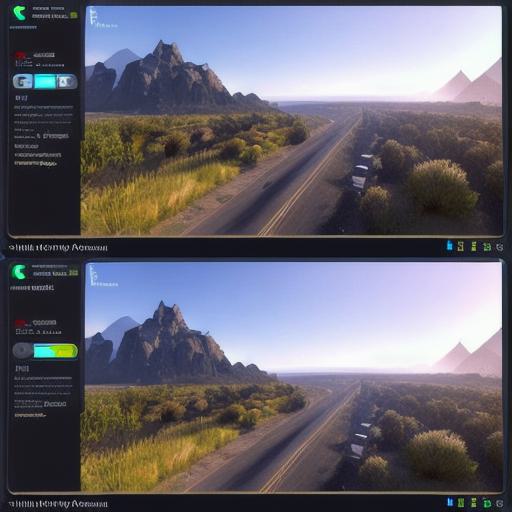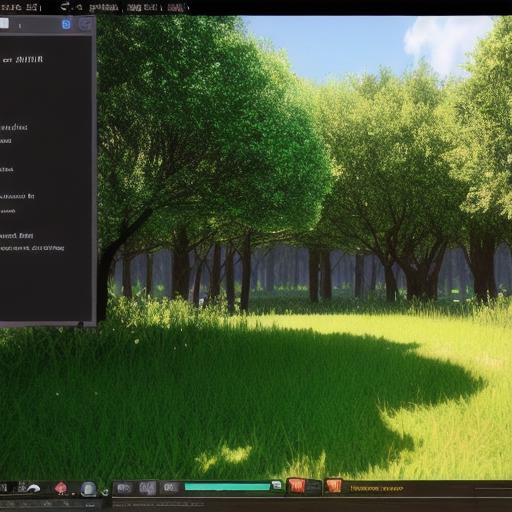The world of video game development is constantly evolving, with new technologies and tools emerging to help game developers create immersive and engaging experiences. Among these tools, artificial intelligence (AI) has proven to be an incredibly valuable resource for game development, allowing developers to create more realistic characters, environments, and storylines, while also improving performance and reducing costs. In this article, we will explore some of the best AI tools available for video game development and their impact on the industry.
What is AI in Video Game Development?
Before we dive into the specific tools, let’s first understand what AI means in the context of video game development. In simple terms, AI refers to the use of algorithms and software programs that enable computers to perform tasks that typically require human intelligence, such as problem-solving, decision-making, learning, and perception.
In video game development, AI is used to create intelligent characters, enemies, and objects that can react to player actions in real-time, adapt to changing circumstances, and make decisions based on their own goals and motivations. AI also enables the creation of procedural generation, where game elements are generated automatically, rather than being created manually by designers.
Best AI Tools for Game Development
- Unreal Engine’s Blueprints Visual Scripting
Unreal Engine is one of the most popular game engines on the market, and its Blueprints Visual Scripting feature is a powerful tool for implementing AI in games. With Blueprints, developers can create complex AI behavior without needing to write any code, using a visual interface that allows them to drag-and-drop nodes and connect them together to create flowcharts of game logic.
Blueprints includes a wide range of built-in AI functionality, such as navigation, pathfinding, decision-making, and animation. It also supports machine learning through Unreal’s ML Kit, which allows developers to train AI models using large datasets and deploy them in real-time.
One example of how Blueprints has been used to implement AI in games is in the creation of the popular Fortnite game mode "Fortnite BR". In this mode, players must build structures and use weapons to fight against other players. The AI behavior for these enemies was created using Blueprints, including their movement patterns, combat strategies, and decision-making.
- Unity’s ML Agents
Unity is another popular game engine that has made significant strides in the realm of AI. Its ML Agents framework allows developers to create intelligent agents that can learn from their environment and adapt to new situations. With ML Agents, developers can train AI models using reinforcement learning, a type of machine learning where an agent receives feedback in the form of rewards or punishments based on its actions.

ML Agents has been used in a variety of applications, including game development. One example is the creation of "Affectiva", an AI-powered virtual character that can recognize and respond to players’ emotions. Affectiva was developed using ML Agents and is designed to provide a more immersive and personalized gaming experience by adapting its behavior based on the player’s mood.
- DeepMind’s AlphaGo
DeepMind is a leading AI research company that has made significant contributions to the field of AI, including the creation of AlphaGo, an AI program that defeated the world champion in the game of Go. While AlphaGo was not specifically designed for video game development, its success demonstrated the potential of AI to surpass human intelligence in certain domains.
The principles behind AlphaGo’s success can be applied to game development, such as the use of deep learning algorithms and reinforcement learning to create intelligent agents that can learn from their environment and adapt to new situations. This approach has the potential to revolutionize the way games are created, enabling developers to create more challenging and engaging experiences for players.
- Google’s TensorFlow
TensorFlow is an open-source machine learning library developed by Google. It provides a platform for developing and training AI models, including those used in video game development. With TensorFlow, developers can use a variety of deep learning algorithms to create intelligent agents that can learn from their environment and make decisions based on their observations.
One example of how TensorFlow has been used in game development is the creation of "DeepMind’s Dreaming Agent", an AI program that was trained using reinforcement learning to explore and interact with a virtual world. The agent learned to navigate its environment, gather information about its surroundings, and make decisions based on its observations. While not specifically designed for video game development, the Dreaming Agent demonstrates how deep learning algorithms can be used to create intelligent agents that can learn and adapt in complex environments.
- Amazon’s Lumberjack
Amazon has also made significant contributions to the field of AI, including the creation of Lumberjack, an open-source toolkit for building and training machine learning models. With Lumberjack, developers can use a variety of deep learning algorithms to create intelligent agents that can learn from their environment and make decisions based on their observations.
Lumberjack has been used in a variety of applications, including game development. One example is the creation of "DeepMind’s Go Game", an AI program that was trained using reinforcement learning to play the game of Go. The program was able to defeat several world champions and demonstrate the potential of AI to surpass human intelligence in certain domains.
Case Studies in AI-Powered Video Games
- "The Last of Us"
"The Last of Us" is a popular video game that features an intelligent enemy called "Clickers". Clickers are mutated creatures that can sense the player’s location and direction, and will attack them if they get too close. The AI behavior for Clickers was created using a combination of traditional programming and machine learning techniques.
The developers used traditional programming to create the basic behavior for Clickers, such as their movement patterns and attacks. They then used machine learning algorithms to train Clickers to adapt to new situations and learn from their experiences. This approach allowed the developers to create a more realistic and challenging enemy for players to face.
- "Red Dead Redemption 2"
"Red Dead Redemption 2" is another popular game that features intelligent enemies using AI. The game includes a variety of enemies, including outlaws, law enforcement officers, and animals. The AI behavior for these enemies was created using a combination of traditional programming and machine learning techniques.
The developers used traditional programming to create the basic behavior for enemies, such as their movement patterns and attacks. They then used machine learning algorithms to train the enemies to adapt to new situations and learn from their experiences. This approach allowed the developers to create a more realistic and challenging game world for players to explore.
- "Apex Legends"
"Apex Legends" is a popular multiplayer game that features intelligent characters using AI. The game includes several characters, each with their own unique abilities and behaviors. The AI behavior for these characters was created using a combination of traditional programming and machine learning techniques.

The developers used traditional programming to create the basic behavior for characters, such as their movement patterns and attacks. They then used machine learning algorithms to train the characters to adapt to new situations and learn from their experiences. This approach allowed the developers to create a more engaging and immersive game world for players to explore.
Challenges and Limitations of AI in Video Game Development
While AI has proven to be a powerful tool for creating intelligent agents in video games, it also presents several challenges and limitations. One of the biggest challenges is the "black box" nature of deep learning algorithms, which can make it difficult to understand how the agent arrived at its decisions. This lack of transparency can make it challenging for developers to debug and optimize AI-powered games.
Another challenge is the potential for AI agents to become too powerful or unpredictable, leading to an unsatisfying gameplay experience for players. Developers must carefully balance the intelligence of their AI agents with the needs of the game and its players to create a challenging and engaging game world.
Conclusion
AI is transforming the way video games are created and played, providing developers with new tools to create intelligent agents that can learn and adapt in complex environments. As the technology continues to evolve, we can expect to see even more innovative applications of AI in video game development in the future.



